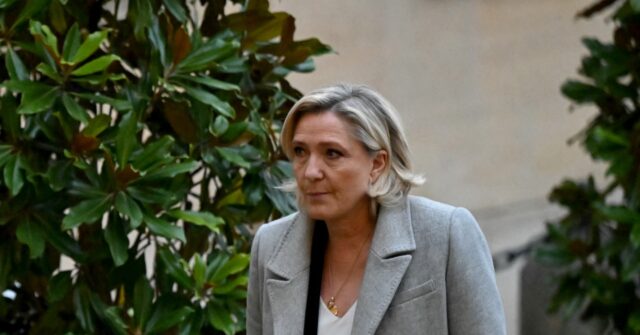Marine Le Pen, the leader of France’s National Rally party, is actively preparing for the possibility of an early presidential election as she perceives President Emmanuel Macron’s grip on governance weakening significantly. With Macron recently appointing his fourth prime minister in just one year, Le Pen has expressed her concerns about the fragility of Macron’s leadership and the diminishing institutional tools available to him for effective governance. In an interview with Le Parisien, she emphasized that preparations for a potential early election are prudent, given the precarious situation surrounding Macron and his administration.
Le Pen asserts that Macron has “lost control everywhere” and hints at a likely end to his presidency, or at least its effectiveness. Although Macron has publicly stated his commitment to serving out his term, which concludes in 2027, Le Pen raises questions about the potential impact of external pressures, such as economic demands from international creditors amid France’s escalating debt crisis. This environment of fiscal instability could force Macron to reconsider his political future, leaving the door open for a shift in leadership.
Historically, Le Pen has made three previous presidential runs and currently leads the race to succeed Macron, bolstered by the perception of his administrative shortcomings. However, her path to the presidency may not be entirely straightforward. Le Pen is facing a legal case regarding alleged misappropriation of EU funds, which could culminate in a five-year ban from holding any national office if the court ruling lands against her. Such an outcome would be detrimental to her ambitions of leading the nation.
Even if Le Pen navigates this legal challenge successfully, she faces inherent difficulties due to France’s electoral system, designed to reinforce the dominance of traditional political parties. This system consists of two voting rounds, where numerous candidates compete in the first round, with only the strongest advancing to the runoff. This framework often leads to unexpected alliances among the mainstream parties, aiming to thwart outsiders from gaining power. An illustrative historical moment occurred in 2002 when both the left and right unified their efforts behind candidate Jacques Chirac to defeat Jean-Marie Le Pen, Marine’s father, thereby preventing his ascension.
Nonetheless, public sentiment appears increasingly disenchanted with the traditional political framework, prompting discussions around potential constitutional changes. A recent survey indicates that a significant majority, 56 percent of respondents, would support abolishing the current Fifth Republic, established in 1958, in favor of a Sixth Republic. Concurrently, President Macron’s popularity continues to plummet, with 75 percent of the populace expressing negative views regarding his administration. Such public dissatisfaction may provide an opening for non-establishment figures like Le Pen if the electoral landscape evolves and becomes more favorable for outsider candidates.
As the political climate shifts, Le Pen’s ambitions remain intertwined with broader sentiments regarding reform and governance in France. While she prepares for the possibility of early elections, her trajectory depends not just on legal circumstances, but also on collective public dissatisfaction and the foundational changes that could redefine France’s political landscape. The evolving dynamics between the establishment and populist movements contribute to a complex narrative that will shape the future of French leadership and governance in the years to come.

